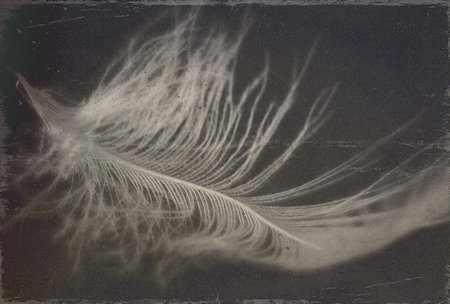Billie Holiday’s 1944 recording of “I’ll Be Seeing You” was the final transmission sent by NASA to the Opportunity rover on Mars when its mission ended on February 13, 2019.
At the Center
My father’s friend Harry, a man whose memory has perished before him, says,
Are you from the neighborhood? Are you here to take me home? My father adjusts his pillow. You’re petered out, he says. Get yourself some shut-eye, relying upon his old phrases for comfort.
As if he has dropped suddenly into sleep, Harry slumps in his wheelchair, but my father, instead of reaching for Harry, lays a hand on my arm. He keeps it there, his lips silently forming the measured count of a boxing referee. At seventeen, Harry stirs and sits upright.
Can I trust you? Harry says. Can I trust you? And when my father nods, he quiets. We shuffle. We wait. At last, Harry gnaws one word from the thick bone of his past. Abyssinia, he says. Abyssinia, as if an exotic-sounding ancient name would unlock our encrypted identities. Soon, my father pauses in the doorway to wave. Abyssinia, he calls to silence while I wait in the hall.
On the Road
Anymore, my father says, as I drive us to the cemetery, none of my friends knows beans. When I miss a turn, he sighs. When I turn into a wide driveway to correct myself, he stiffens and holds his breath until we’re realigned.
I slow for the gated entrance, turn in between the pillars embossed with crosses. My father opens his window and inhales. The early spring clouds over us as I slow to barely moving and ask about his friend’s secret word. Abyssinia, my father says. It was a country once.
As I search for the pair of junipers I use each year as a landmark, my father says, Abyssinia, say it fast. I’ll be seeing you. Harry and I were just kids back then. There was a version by Sinatra. He drifts into his own rendition. Softly, in his threadbare bass, he carries the tune through wistfulness as if it were a gravely injured body.
In the Cemetery
This will be the day my father fails to find my mother’s grave. The old phrases follow while we search. The promised cold front wind carries the flurries of a Western Pennsylvania late March, flakes that go to water when they touch the landscaped earth, creating a damp pointillism of where we walk.
I know we are close. There is time enough not to help. Back and forth my father paces while I watch the nearby woods at the cemetery’s border. I can tell he is using his footprints in the wet grass as a guide. Three twenty-yard loops, just over a minute, take him to the plot.
When, at last, we lay our flowers beside her name, my father stumbles into silence. The day, by now, is full of the hum and whistle of devotion just out of reach. I imagine a tune for the present while we wait for the necessary words to embrace us. The old phrases clasp their hands and lower their heads. They recall my mother’s mouth repeating them throughout each day, how she relied on them for the selective memory of her final years. Shuffling in place, they begin: This language or none, for you will have no other.
___
Gary Fincke’s latest collection of essays, The Darkness Call, won the Robert C. Jones Prize for Short Nonfiction prose. “After the Three-Moon Era,” which appeared first at Kenyon Review Online, was chosen to appear in Best American Essays 2020. His stories, poems, and essays have appeared in such periodicals as Harper’s, The Paris Review, Ploughshares, Poetry, and The Missouri Review.


2 comments
Mary ann O'gorman says:
Sep 16, 2021
“There is time enough not to help.” That line alone carries so much of the present and the future.
Gorgeous piece.
Roy says:
Nov 12, 2021
Such a poignant meditation. It takes me to when my Grandmother neared the end of her life in a red light green light fashion as she recalled the distant past, but only the last five minutes of modernity. So blessed that my father did not suffer the same.